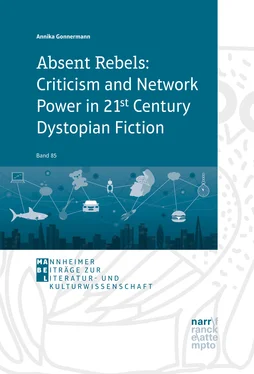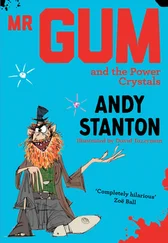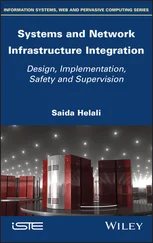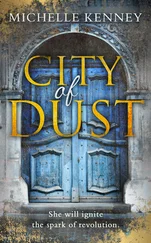Annika Gonnermann - Absent Rebels - Criticism and Network Power in 21st Century Dystopian Fiction
Здесь есть возможность читать онлайн «Annika Gonnermann - Absent Rebels - Criticism and Network Power in 21st Century Dystopian Fiction» — ознакомительный отрывок электронной книги совершенно бесплатно, а после прочтения отрывка купить полную версию. В некоторых случаях можно слушать аудио, скачать через торрент в формате fb2 и присутствует краткое содержание. Жанр: unrecognised, на английском языке. Описание произведения, (предисловие) а так же отзывы посетителей доступны на портале библиотеки ЛибКат.
- Название:Absent Rebels: Criticism and Network Power in 21st Century Dystopian Fiction
- Автор:
- Жанр:
- Год:неизвестен
- ISBN:нет данных
- Рейтинг книги:3 / 5. Голосов: 1
-
Избранное:Добавить в избранное
- Отзывы:
-
Ваша оценка:
- 60
- 1
- 2
- 3
- 4
- 5
Absent Rebels: Criticism and Network Power in 21st Century Dystopian Fiction: краткое содержание, описание и аннотация
Предлагаем к чтению аннотацию, описание, краткое содержание или предисловие (зависит от того, что написал сам автор книги «Absent Rebels: Criticism and Network Power in 21st Century Dystopian Fiction»). Если вы не нашли необходимую информацию о книге — напишите в комментариях, мы постараемся отыскать её.
Absent Rebels: Criticism and Network Power in 21st Century Dystopian Fiction — читать онлайн ознакомительный отрывок
Ниже представлен текст книги, разбитый по страницам. Система сохранения места последней прочитанной страницы, позволяет с удобством читать онлайн бесплатно книгу «Absent Rebels: Criticism and Network Power in 21st Century Dystopian Fiction», без необходимости каждый раз заново искать на чём Вы остановились. Поставьте закладку, и сможете в любой момент перейти на страницу, на которой закончили чтение.
Интервал:
Закладка:
The Circle has been read as an exploration of technologically-induced identity models (cf. Halfmann; also Gellai) and as an enquiry into corporate responsibility (cf. Martin). What makes the novel interesting for the current analysis, is the absence of rebels: The Circle is a dystopia largely void of rebellion and without a totalitarian state apparatus. In fact, it demonstrates how people can ‘crowd-found’ a dystopia through their combined free albeit involuntary decisions. After investigating the decidedly neoliberal setting of the novel, this analysis will shed light on The Circle ’s depiction of network power, which operates via the fear of social exclusion as a direct result of not accepting a standard, before commenting on the specific role technology plays in establishing said standard. As a final step, the fourth subchapter will focus on the formulation of critique within the text, demonstrating that external criticism is explicitly marked as a non-option by and within the novel, while immanent criticism emerges as the only viable option for fostering social reform.
1. Corporate Dystopia – The Rise of the Circle
Eggers’ The Circle seems to resonate intensively with classical dystopian fiction, above all with George Orwell’s Nineteen Eighty-Four. Virginia Pignagnoli, for instance, claims that Eggers constructs his narrative in “plain Orwellian fashion” (“Surveillance” 151), while Joseph A. Domino claims that Eggers’ novel “is a version of Orwell’s 1984 [sic!]” (“Privacy”). At first glance, these observations seem valid: insisting on being called “Uncle Eamon” ( TC 25), the CEO Eamon Bailey taps into the same family discourse as Big Brother; besides, the companies’ maxims, “Secrets are Lies,” “Sharing is Caring,” and “Privacy is Theft” (ibid. 305), are stylistically and structurally reminiscent of Nineteen Eighty-Four ’s party slogans, “WAR IS PEACE,” “FREEDOM IS SLAVERY,” and “IGNORACNE IS STRENGTH” (31, emphasis in the original), inviting a direct comparison between the two novels (cf. also Galant). Yet to evaluate Eggers in terms of the standards set by Orwell et al. alone would deeply wrong both him and his novel. While The Circle is arguably the novel closest to traditional dystopian structures of all those discussed in this analysis, comparisons focused purely on the close textual and structural proximity between the novel and classical dystopian fiction do not do justice to Eggers’ text since they ignore the substantial differences between the two novels in both content, narrative structure, and type of criticism employed.
As Andreas Bernard has already pointed out in his FAZ review “Der Dritte Kreis der Hölle” (2018)1, many aspects of the novel differ significantly from the tropes and topoi prevalent in classical dystopian fiction. For example, while the traditional dystopian novel as popularised by Orwell, Huxley, and Zamyatin constructs an estranged, authoritarian world state, Eggers describes a fictive tech company in an all too familiar contemporary world, which slowly but steadily supplants the state as the prime engine of social reform.2 Indeed, The Circle narrates the success story of a shiny, super-hip corporation, constantly highlighting the fact that in a capitalist and globalised world state structures have served their time. As Tom Moylan diagnosed, “[i]n many works of the dystopian turn […] portrayals of the state disappear” (“Moment” 138), until eventually “the power of the authoritarian state gives way to the more pervasive tyranny of the corporation” (ibid. 135). Emphasising “the complex interconnections between corporations and government” (Galow 123), the novel thus partakes in the ongoing discussion about the influence of the economy on politics. For instance, when Mae arrives on the campus and reads through the schedule of Circle activities for the day, she discovers that a “congressman [she] hadn’t heard of, grey-haired but young, was holding a town hall at six thirty” ( TC 6). His speech is advertised on the elevator doors and Mae watches him “talking at a podium, somewhere else, flags rippling behind him, his shirtsleeves rolled up and his hands shaped into earnest fists” (ibid.). Yet the staged election campaign performance displayed by the US politician comes to an abrupt end: “[t]he doors opened, splitting the congressman in two” (ibid.). Not only the apparent disinterest with which Mae registers the politician (she had never heard of him), but also the fact that his image is split in two by the company’s elevator doors, foreshadows the minor role politics and its representatives will play in Eggers’ novel. This section at the very beginning of the text paves the way for a narrative centring around the slow descent of political power into irrelevance, and the concomitant ascent of corpocratic power. As Darko Suvin has commented in a different context, “the partnership and collusion between the capitalist global corporations and the nation-States [sic!] seems […] finally [be] dominated by the former” (“Reflections” 73). In Eggers’ world, chances are that eventually states will be bereft of all power.
The novel regularly features examples that remind the readers of the dominance of capital and companies, establishing neoliberal capitalism as the sole paradigm that governs both politics and business as well as any other aspect of human life. “There were notices about each day’s campus visits: a pet adoption agency, a state senator, a Congressman from Tennessee, the director of Médecins Sans Frontières” ( TC 102). The senator’s position on the list of people to visit the campus is paradigmatic of the insignificance and low status of representatives of the state. Listed next to a pet adoption agency and the CEO of an NGO, two organisations that cannot rival the Circle neither with respect to money nor influence, politicians seem to occupy a similar position of minor importance only, if any at all. Indeed, the novel downgrades the importance of politicians in comparison to the company CEOs on multiple occasions, for example, when introducing Tom Stenton, the CEO and one of the Three Wise Men, the Founders of the Circle.
To the lower left […] was Tom Stenton, the world-striding CEO and self-described Capitalist Prime – he loved the Transformers – wearing an Italian suit and grinning like the wolf that ate Little Red Riding Hood’s grandmother. […] He was more in the mold of the eighties Wall Street Traders, unabashed about being wealthy, about being single and aggressive and possibly dangerous. He was a free-spending global titan in his early fifties who seemed stronger every year, who threw his money and influence around without fear. He was unafraid of presidents. He was not daunted by lawsuits from the European Union or threats from state-sponsored Chinese hackers. Nothing was worrisome, nothing was unattainable, nothing was beyond his pay grade. (ibid. 23f., emphasis in the original)
Described as “dangerous,” “wolf,” and “aggressive,” that is to say, as a character outside of accepted social behaviour delineated by society and state, Tom Stenton acts as the poster boy of unleashed neoliberal power. Although his preferred nickname ‘Capitalist Prime’ alludes to the fictional leader of the alien race which features in the Japanese comic book series Transformers (humanoid robots with the ability to turn into cars, lorries, or planes, which are usually described as morally impeccable and socially committed), Stenton is nothing like the heroic Optimus Prime. While Stenton admires the physical strength and leadership qualities associated with Optimus Prime, the substitution of “optimus” by “capitalist” suggests that Stenton prioritises money over ethics: his name translates as ‘capitalism first.’ With literally “nothing beyond his pay grade,” again an allusion to the influence of money, the lingua franca of free-market capitalism, Stenton has managed to withdraw himself from the power of states and thus serves as a symbol for the entire company. Moreover, his characterisation reads like the rhetoric employed by Thomas Hobbes in his thought experiment Leviathan (1651), which describes the natural state of war individuals find themselves in before agreeing on the state monopoly on legitimate violence (‘homo homini lupus’). Characterised as a “global titan” – a mythological association that, like the descriptors “wolf” and “dangerous,” catapults him beyond man-made rules and thus society – in his function as CEO, Tom Stenton has surpassed not only single states, like China, currently one of the big players in the global market: he floats on top of multiple nations, the European Union, which, despite the combined powers of more than two dozen states, cannot threaten him. In fact, the example suggests that “the state does not represent even the smallest of hurdles to the Circle’s efforts” (Martin 61). Stenton and the corporation “seemed stronger by the year” ( TC 23), foreshadowing its dominating role by the end of the novel.
Читать дальшеИнтервал:
Закладка:
Похожие книги на «Absent Rebels: Criticism and Network Power in 21st Century Dystopian Fiction»
Представляем Вашему вниманию похожие книги на «Absent Rebels: Criticism and Network Power in 21st Century Dystopian Fiction» списком для выбора. Мы отобрали схожую по названию и смыслу литературу в надежде предоставить читателям больше вариантов отыскать новые, интересные, ещё непрочитанные произведения.
Обсуждение, отзывы о книге «Absent Rebels: Criticism and Network Power in 21st Century Dystopian Fiction» и просто собственные мнения читателей. Оставьте ваши комментарии, напишите, что Вы думаете о произведении, его смысле или главных героях. Укажите что конкретно понравилось, а что нет, и почему Вы так считаете.












